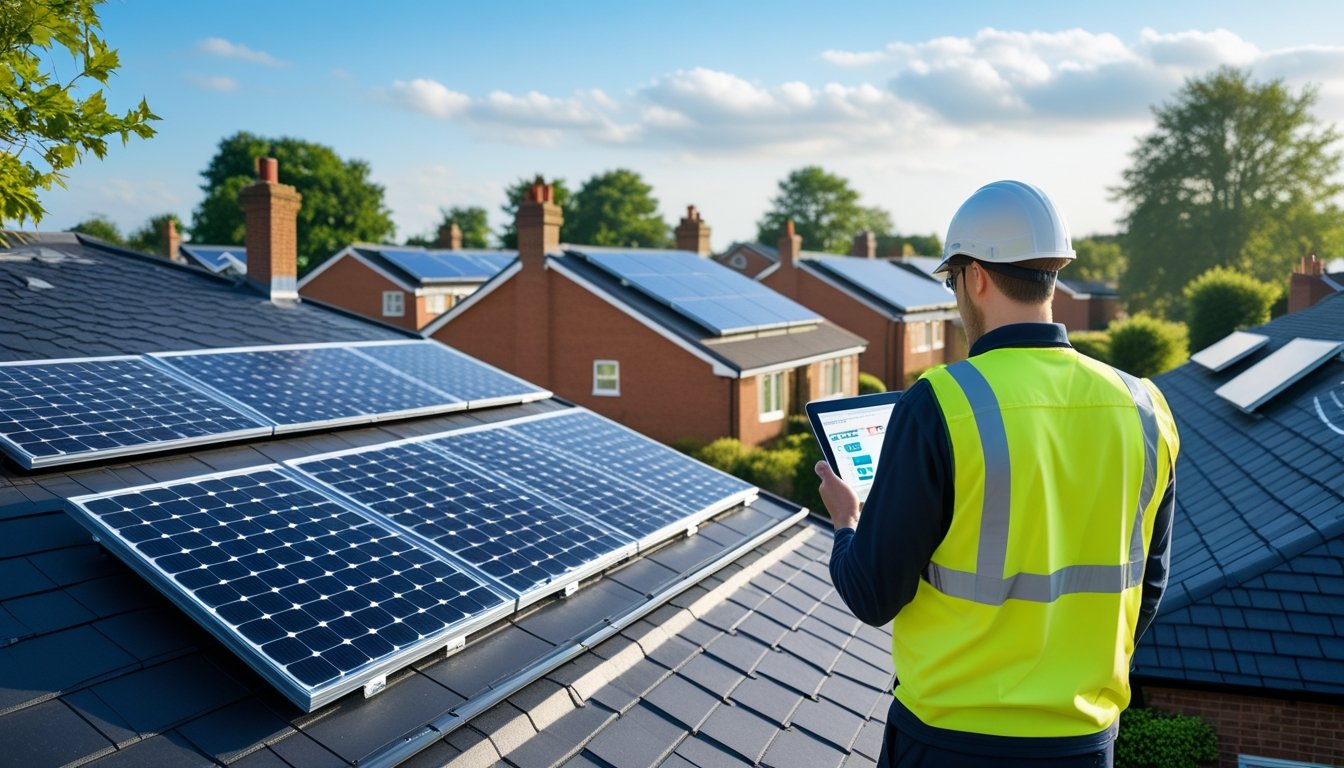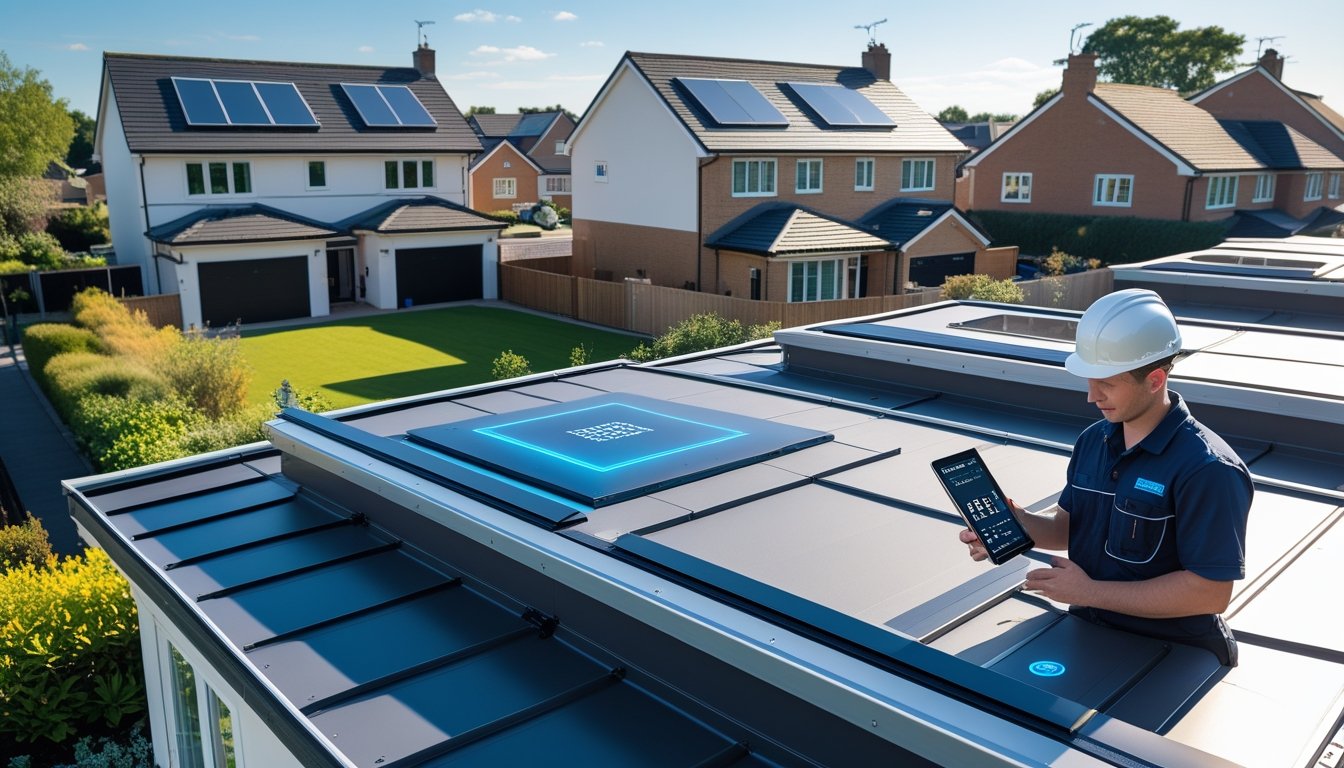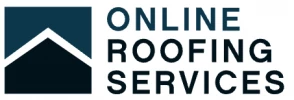Late updated: 16 Nov 2025 14:11
Written by: Oliver Bennett
Enhancing UK Roofs With Smart Insulation Systems: A Modern Approach
In an era where energy efficiency is paramount, the integration of smart insulation systems in UK roofs stands out as a game-changer. Utilising IoT technology combined with advanced insulation materials, these systems transform traditional roofing into an intelligent layer that optimizes energy performance. As our homes demand greater efficiency, addressing this through innovative roofing approaches isn't just ideal—it's essential.

This shift isn't solely about energy savings or sustainability, but about how these technologies enhance home comfort and reduce long-term costs. By detecting leaks and regulating the indoor climate, smart roofs automatically adjust to the needs of the household, showcasing a seamless blend of technology and practicality.
Our exploration into these innovations will delve into how urban environments are reimagining their rooftops and the tangible benefits they offer. As this topic gains importance, understanding its impact becomes crucial for both homeowners and industry professionals.
Key Takeaways
- Smart insulation improves energy efficiency.
- Innovative roofs decrease maintenance costs.
- Upcoming trends focus on sustainable solutions.
Smart Insulation Systems: Revolutionising UK Roofs
Smart insulation is reshaping the roofing landscape in the UK, merging advanced technology and sustainable materials to tackle energy waste. This evolution in roof systems not only enhances energy efficiency but also offers sophisticated features like automation and real-time monitoring, setting a new standard for modern roofing solutions.
The Role of Smart Insulation in Energy Efficiency
Our homes are becoming smarter, and insulation is at the forefront of reducing energy consumption. Smart insulation systems work tirelessly to minimise heat loss, ensuring that warmth is retained during the colder months and excess heat is deflected during summer. By embedding sensors and using data analytics, these systems provide insights into energy consumption patterns. This results in significant energy savings and a reduced carbon footprint.
The integration of smart technology means real-time monitoring is possible, allowing for adjustments that maximise thermal performance. With the demand for sustainable housing increasing, smart insulation addresses this by complying with stringent building regulations. These advanced solutions translate to tangible benefits, such as reduced utility bills and enhanced indoor comfort.
Key Features of Smart Roofing Technologies
Smart roofing technologies enrich our insulation systems with innovative features that enhance operational efficiency. One standout feature is automation, enabling the insulation to adjust dynamically according to environmental conditions, ensuring optimal thermal comfort. This includes the use of AI-powered systems that can predict weather changes and adjust insulating properties accordingly.
What sets smart roofing apart is its capability for real-time condition monitoring. Sensors embedded within the system alert homeowners to potential issues before they become significant problems, maintaining the structural integrity and durability of roofs. Additional functionalities like integrated solar panels can further enhance energy efficiency, making our homes greener and more cost-effective.
Advanced Insulation Materials and Sustainable Solutions
Advancements in insulation materials are pivotal to the effectiveness of smart systems. Materials such as aerogels, vacuum panels, and phase change materials are leading the charge. These innovations provide superior thermal insulation, which is crucial for reducing heat transfer and lowering energy consumption.
These systems often incorporate sustainable solutions, like recycled materials, which align with eco-friendly building practices. The utilisation of such materials not only bolsters energy efficiency but also contributes to lessening our carbon footprint. As these materials continue to evolve, they promise to offer even greater benefits, ensuring our homes remain at the cutting edge of comfort, efficiency, and sustainability.
Sustainable Smart Roofing Innovations for UK Homes

In the UK, sustainable smart roofing is key to reducing energy consumption and improving environmental sustainability for homeowners. Key innovations include solar-integrated roofs, green roofing systems, and cool roofs with reflective coatings, all contributing to a reduction in energy bills and promoting eco-friendly practices.
Solar-Integrated Roofs and Energy Production
Solar-integrated roofs have transformed energy production in residential environments. With solar tiles seamlessly blending into roof designs, they transform sunlight into electricity while maintaining aesthetic appeal. This innovation enables UK homeowners to generate their own power, significantly cutting down on energy bills and contributing to sustainability goals.
These systems can be part of broader smart home systems, integrating with energy management solutions to optimise usage. Additionally, solar-integrated roofs can deliver significant long-term cost savings. Although initial installation may be costly, metal roofing combined with solar integration can enhance durability and further yield financial returns.
Green Roofing Systems and Biodiversity
Green roofing systems offer a unique blend of ecological benefits and urban aesthetic improvements. These roofs provide natural insulation, utilising recycled materials, and bio-based components to promote environmental sustainability. Plant layers on green roofs create habitats for local wildlife, enhancing biodiversity in urban areas.
They contribute to sustainable building practices by regulating building temperatures and reducing urban heat island effects. Beyond environmental impacts, they can extend roof durability and boost property values. Encouraging the integration of green roofs aligns with various sustainability goals and supports climate change mitigation efforts.
Cool Roofs and Reflective Coatings
Cool roofs are designed with reflective coatings that minimise heat absorption. By reflecting sunlight, these roofs help maintain lower roof temperatures, contributing to energy efficiency by reducing cooling needs. Properties coated with reflective materials—either as part of metal roofing or asphalt shingles—can directly address energy consumption challenges.
This approach is particularly beneficial in urban areas, where cooling demands are high. We see cool roofs as a practical solution to mitigate the effects of climate change by reducing reliance on air conditioning systems and lowering carbon emissions. Combining reflective materials with sustainable roofing solutions supports a holistic strategy for achieving sustainability objectives.
Frequently Asked Questions

Smart insulation systems are transforming roofing standards in the UK by enhancing efficiency and sustainability. Below, we address key queries associated with these innovative systems, including their benefits, cost savings, environmental considerations, longevity, and available incentives.
What are the primary benefits of installing smart insulation systems in UK properties?
Smart insulation systems offer increased thermal efficiency and real-time monitoring capabilities. These systems detect leaks early, reducing potential damage and repair costs. Additionally, they can integrate with smart home technologies to adjust insulation settings automatically, optimising comfort and performance for homeowners.
How do smart insulation systems contribute to energy efficiency in homes?
By maintaining a consistent interior temperature, smart insulation reduces the workload on heating and cooling systems. This minimises energy consumption and lowers utility bills. Advanced materials with high R-values enhance this effect, preventing heat loss in winter and heat gain in summer.
Can smart insulation technologies help in reducing heating costs during the winter months?
Yes, they significantly decrease heating costs. By improving thermal retention, smart insulation ensures that heat generated indoors stays inside longer. This reduces the need for constant heating, thus cutting back on monthly energy expenses and contributing to lower greenhouse gas emissions.
What environmentally friendly materials are commonly used in smart insulation for UK homes?
Insulation systems often use eco-friendly materials such as cellulose, sheep's wool, and recycled textiles. These materials not only provide high thermal resistance but also have a lower environmental impact during production and disposal, aligning with sustainable building practices.
What is the expected lifespan of smart insulation systems and how do they compare to traditional insulation?
Smart insulation systems typically last 20-30 years, similar to traditional options. However, their advanced features provide ongoing monitoring and optimisation, potentially extending their functional use. Regular system updates and maintenance can further prolong their lifespan, maintaining efficiency over time.
Are there any government grants or incentives available to UK homeowners looking to install smart insulation solutions?
Various government schemes, such as the Green Homes Grant, offer financial incentives to encourage energy-efficient upgrades. These can cover a portion of the installation costs, making smart insulation systems more accessible. It's advisable for homeowners to check current local schemes for specific details and eligibility criteria.
